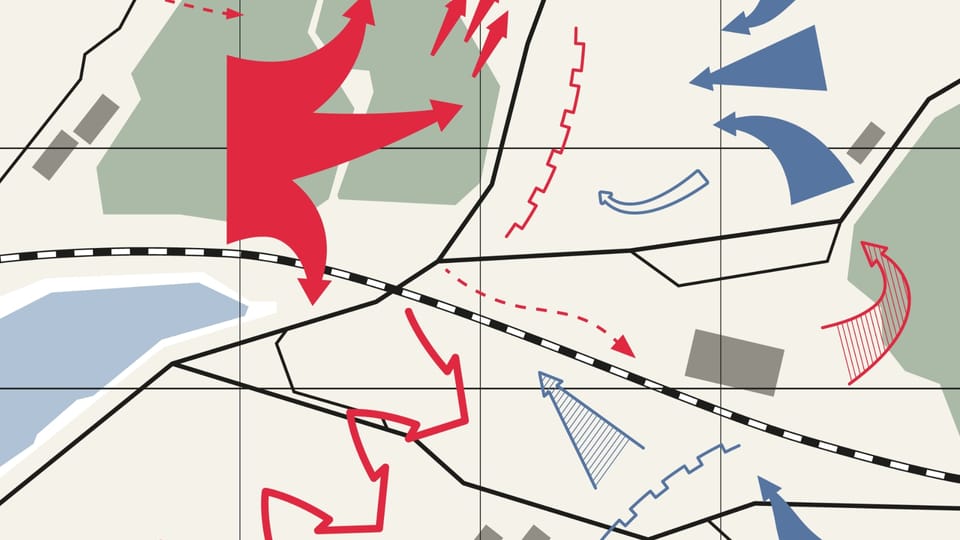Who is He? Wonderful Counselor (Isaiah 9:6)

Every Christmas, I read and hear these words:
For to us a child is born,
to us a son is given,
and the government will be on his shoulders.
And he will be called
Wonderful Counselor, Mighty God,
Everlasting Father, Prince of Peace.
Of the increase of his government and peace
there will be no end.
He will reign on David’s throne
and over his kingdom,
establishing and upholding it
with justice and righteousness
from that time on and forever.
The zeal of the LORD Almighty
will accomplish this.
(Isaiah 9:6-7 NIV)
These words were spoken by the prophet Isaiah over seven hundred years before Jesus was born. They are recorded in the book of Isaiah, one of the greatest prophets found in the Bible. These words were included in Handel’s Messiah. They’re quoted in church. They are written on the front of Christmas cards. They are familiar. I love that these words are simple enough to be understood by anyone. Words like Wonderful, Mighty, Everlasting, Prince of Peace – those aren’t hard to understand.
I’ve always suspected that there are more to these words than meets the eye. Although they can be understood by anyone, there is richness and a depth that I’ve never explored. Something lies behind the surface. As we go through Advent this year, I’d like to look at some of the names given to Jesus in this passage – Wonderful Counselor, Mighty God, Everlasting Father, and Prince of Peace.
These words weren’t given in isolation. What would cause Isaiah to speak these words in the first place?
Needed: A Strategy
Isaiah was a man who prophesied in and around Jerusalem around 740 BCE. A prophet was someone who spoke on behalf of God. They sometimes predicted the future. Often, as in this passage, the prophets weren’t just predicting the future. They were speaking to the current situation. They were critiquing the culture and calling people to faithfulness. Isaiah was one of these prophets – some people say he was the greatest of the writing prophets.
Isaiah stated his career as a prophet around 740 BCE, the year that King Uzziah died. That means nothing to us, but for people of that time, the death of King Uzziah was a significant event. It would be like talking about 9-11 today. Everyone would immediately know what you meant by that. King Uzziah has a godly and powerful king who reigned well. He made one big mistake: he burned incense in the Temple. God struck him with leprosy until he died. Despite this, he was a good king overall. His reign was stable. When he died, fifty years of relative peace in Israel and Judah came to an end.
Isaiah spoke to a time of turmoil in Judah. The situation was anything but stable. The key to understanding the first part of Isaiah (chapters 1 to 39) is to understand what was going on in the nation. The new king was a man named Ahaz. He was not a good man. He didn’t worship God; he led the nation into idolatry; he even killed his own son as a human sacrifice. He was a king who faced a very difficult decision. Things were not looking so good.
On one hand, you had the Assyrians. The Assyrians were the world power of that day, and they were on the move. They were known for their massive armies and their brutal tactics. You would not want to face the Assyrian army. No nation would want to go against the Assyrians if they could help it.
King Ahaz faced a different threat. Israel and Syria were also concerned about Assyria. They tried to convince King Ahaz to join a coalition against Assyria. Maybe, they thought, the three nations together would be able to stand up to Assyria.
Ahaz faced a choice. Should he join the coalition with Israel and Syria? Should he try to form a coalition with Assyria? Or should he do nothing and trust God? He couldn’t seem to win. Side with Israel and Syria, and he would tick off Assyria. Side with Assyria, and he ticks off Israel and Syria. Do nothing, and get flattened.
To make it worse, you have Isaiah saying to just trust God. Sounds good, Ahaz must have thought, but not exactly a workable strategy. Trust in God sounds good when you’re not facing massive armies.
Ahaz made the choice. He decided to join Assyria. He went with the big guys of the day, the world power. They did help in the short term. They defeated Israel. It was only a matter of time, however, before Assyria conquered Judah. It was a coalition that was expedient and doomed from the start.
Even worse, the nation was in a mess. The people were living in disobedience. They oppressed the poor. They worshiped other gods. The people were so desperate about the world situation that they used mediums to consult with the dead. They were part of a desperate alliance with the enemy, rather than in an alliance with the God who had promised to protect them. Isaiah prophesied judgment on them. He told them that they were headed for trouble:
My people will be led away as captives, weary and hungry. And because they are hungry, they will rage and shake their fists at heaven and curse their king and their God. Wherever they look, there will be trouble and anguish and dark despair. They will be thrown out into the darkness. (Isaiah 8:21-22)
The first place to suffer would be Galilee. It would be the first to fall, the first to come under Assyrian control.
Hopeless Situations
Talk about a pretty hopeless situation. We’re getting to the good news in a minute. I need to pause to say that it is not a new thing to God when we get into messes in our lives. This situation seems pretty hopeless. Ahaz didn’t just make one mistake. He continued to ignore God and to make the wrong choices. The words that we’re about to read aren’t given in the context of people who are doing everything right. These words are given to people who messed up, who continue to mess up. These words are given in the middle of a hopeless situation.
In the very area that the Assyrian conquest would begin, God promises that a new light will dawn. God promises that Judah’s enemies will be defeated in that place:
Nevertheless, that time of darkness and despair will not go on forever. The land of Zebulun and Naphtali will soon be humbled, but there will be a time in the future when Galilee of the Gentiles, which lies along the road that runs between the Jordan and the sea, will be filled with glory. The people who walk in darkness will see a great light-a light that will shine on all who live in the land where death casts its shadow. Israel will again be great, and its people will rejoice as people rejoice at harvesttime. They will shout with joy like warriors dividing the plunder. For God will break the chains that bind his people and the whip that scourges them, just as he did when he destroyed the army of Midian with Gideon’s little band. In that day of peace, battle gear will no longer be issued. Never again will uniforms be bloodstained by war. All such equipment will be burned. (Isaiah 9:1-5)
In the most hopeless situation, there was hope. Isaiah spoke these words, and you can almost imagine the people asking, “How? How is this going to happen? How is God going to do this?”
How will God deliver his people? Through the birth of a child:
For to us a child is born,
to us a son is given,
and the government will be on his shoulders.
And he will be called
Wonderful Counselor, Mighty God,
Everlasting Father, Prince of Peace.
(Isaiah 9:6 NIV)
This is the last place you would expect to find hope. This, though, is not just any child. This is a child with some amazing names – Wonderful Counselor, Mighty God, Everlasting Father, and Prince of Peace.
This is a term that has connotations of deity. The term “counselor” is not what we think of today in terms of a therapist, or someone we tell our problems – although Jesus is that as well. It’s more of a military strategist. It probably refers to a king who has the ability to come up with a winning military strategy. You could say “Extraordinary Strategist” (NET Bible).
Isaiah predicts a baby that will become an Extraordinary Strategist. Jesus is a Master Strategist, able to deliver his people from hopeless situations. Many of these situations are of our own making. Judah’s was. He is a strategist who can handle situations that look hopeless to us.
Master Strategist
Jesus is the Master Strategist who can deal with our immediate problems. These are the problems that keep us up at night – finances, health, job insecurity, family problems. Jesus came across people with all kinds of problems. He is not surprised by the messes we have, even the problems we get into. Jesus is the strategist who is not surprised, and who specializes in hopeless situations. He brings hope when there doesn’t seem to be any hope.
Jesus is a strategist who can deal with our problems. He doesn’t necessarily take them all away. He gives strength. He helps us deal with situations. Jesus is a strategist who can deal with the situations that we find most hopeless.
Jesus doesn’t just deal with our immediate problems. Jesus is able to deal with our ultimate problems, problems that we aren’t even aware we have. He is a strategist who sees not just the problems we think we have. He deals with the root problems beneath these. When Isaiah prophesied, the people of Judah could only see the immediate problems: the military threat posed by foreign nations. God knew that the real problem was their relationship with God. The foreign nations were not the problem. God could take them with no problem at all. The real problem was that they weren’t trusting God.
God sees us and sees the problems we face. He also looks beyond them and sees that our root problem is much deeper. We were made for a relationship with God. We fill our desire for a relationship with Him with everything else. We face problems, and try to look after them ourselves. We are hungry for a relationship with God but we look everywhere else to be filled. We, like Judah, have followed idols instead of following God.
Isaiah warned Judah to rely on God. They chose to do their own thing. We face decisions of trusting God and doing the right thing, even if it’s hard. Often, we do what’s easy rather than what is right. It’s hard to trust God when we think that would lead to disaster. It’s far easier to look after ourselves, even if looking after ourselves is disobedient.
Jesus is the Mighty Strategist who can deal with our deeper problems. He is the Might Strategist with a plan that stretches back from before we were ever born:
How we praise God, the Father of our Lord Jesus Christ, who has blessed us with every spiritual blessing in the heavenly realms because we belong to Christ. Long ago, even before he made the world, God loved us and chose us in Christ to be holy and without fault in his eyes. His unchanging plan has always been to adopt us into his own family by bringing us to himself through Jesus Christ. And this gave him great pleasure. (Ephesians 1:3-5)
Jesus is the Master Strategist, who delivers his people from hopeless situations.
Got any hopeless situations? Got anything that you can’t solve on your own? Tell him. He has never found a problem that he is surprised by, even if the problems are of our own making. God can deal with any problem you’ve got.
Jesus can even deal with our deeper problems. He came to forgive us, to bring us into his Kingdom. He came to reconcile us to God, to adopt us, to make us his own.
That is Jesus, the Mighty Strategist, the one who can deal with hopeless situations.
O LORD, I will honor and praise your name, for you are my God. You do such wonderful things! You planned them long ago, and now you have accomplished them. (Isaiah 25:1)





